International Women’s Day 2025 gives the PR industry an opportunity to reflect
With worrying shifts in political outlooks and policy across the world impacting marginalised communities, this weekend’s recognition of International Women’s Day is loaded with significance. But with different organisations and factions (with varying motives) claiming ownership of IWD, has this day of recognition, celebration, and reflection of progress lost its impact and import?
Googling 2025’s IWD theme will turn up the catchy phrase ‘Accelerate Action’ from the International Women’s Day website — one that has been highlighted by a significant portion of the media. However, the UN’s more unwieldy ‘For ALL women and girls: Rights. Equality. Empowerment’ has been claimed by many as the ‘true’ theme for this year. Others, still, are following ‘March Forward’ as 2025’s theme. So which should the PR industry be observing on Saturday 8 March?
‘Accelerate Action’ is the unofficial theme promoted by the IWD website, which is run by a marketing company profiting from the awareness day,’ explains Advita Patel, Director of Comms Rebel.
‘Big corporations pay for polished, performative themes designed for mass appeal, but real change goes beyond a catchy slogan. The UN’s theme, #ForAllWomenAndGirls, may not be as neatly packaged, but it reflects a real commitment to advancing gender equality, not just creating a social media moment.’
While the UN aren’t the originators or owners of IWD, they are the body conferred with the most authority due to long association, and a demonstrable record for helping to bring about progress.
PRs will know better than anyone the importance of cutting through clever marketing to the true heart of a story – commitment to change is what’s needed here. This year, we asked women working across PR and comms to share their opinions on how the industry is changing, and where it needs to be better.
‘PR can play a massive role in turning this vision of progress into reality — because at its core, PR is about shaping narratives, influencing opinions, and mobilising action,’ believes Emma Heley, Co-Founder and MD, Thinking Hat Media.
‘When it comes to unlocking equal rights, power, and opportunities (especially for young women and girls), PR can affect real change.’
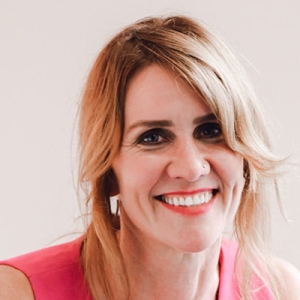 Sarah Waddington, Director of Socially Mobile and Wadds Inc.
Sarah Waddington, Director of Socially Mobile and Wadds Inc.
‘I don’t want to open with anything too depressing but well, here we are.
‘Back in 2006, as part of my MA in Marketing, I completed a dissertation on gender disparities within public relations. The research demonstrated that in a feminised profession, it was males who were occupying management positions. Nearly twenty years later, not that much has changed.
‘To coincide with International Women’s Day 2025, and in collaboration with the CIPR, Socially Mobile has published a Missing Women study. This refers to the staggering shortfall of 3,910 female public relations practitioners in England and Wales who have either left the industry mid-career or failed to advance to senior positions, leaving those behind in predominately junior roles.
‘What’s going on? There are three clear issues.
1) Cultural barriers persist through a ‘boys’ club’ mentality in leadership and the
devaluation of public relations as ‘soft’ work.
2) There are structural issues in that women encounter limited development pathways, poor maternity support, and inflexible working patterns.
3) Societally, women shoulder disproportionate parenting and caregiving expectations and are more likely to make career compromises to justify the cost of childcare.
‘So, what’s the solution? We outline a number of recommendations in the report but as a headline, meaningful progress requires a comprehensive and sustained approach rather than isolated initiatives.
‘We urgently need genuine cultural transformation that challenges deep-rooted assumptions about gender, work, and leadership in public relations – addressing the explicit barriers and implicit biases that influence how policies are interpreted and opportunities are allocated. Until we achieve that, nothing is going to change.’
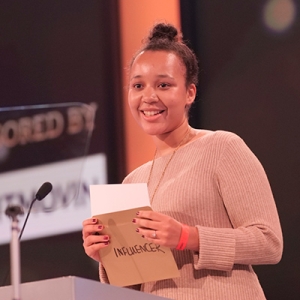 Zoe Mumba Beard, Head of PR & Communications, Bitmovin
Zoe Mumba Beard, Head of PR & Communications, Bitmovin
‘Women are not one homogenous group, and each woman’s experience in the industry will greatly depend on her background and identity. For example, I am a woman of colour, and I don’t think the PR industry has made enough progress regarding racial diversity. After the murder of George Floyd in 2020, the industry seemed willing and motivated to ensure it better represented the wider world. However, PRWeek’s most recent Pay Gaps report found that the ethnicity pay gap has increased to over 25%, with non-white PR professionals earning significantly less than white PR professionals. Overall, while there’s been some progress, the industry needs to recognise that not all women are the same and address the inequalities between women.
‘The way the industry can address these inequalities is by being more transparent about the ethnicity pay gap. Only 41 agencies submitted data for PRWeek’s Pay Gap project, dwarfing the amount that submitted their data for PRWeek’s Annual Top 150 Agencies. Beyond transparency, agencies and in-house teams need to invest more in diverse talent and engage with organisations like The Blueprint, the Taylor Bennett Foundation, and the UK Black Comms Network if they are serious about making real change in the industry.’
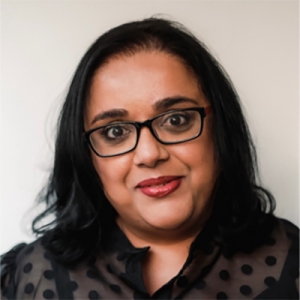 Advita Patel, Director of Comms Rebel, co-host of CalmEdgedRebels and A Leader Like Me, President of the CIPR, and co-author of ‘Building a Culture of Inclusivity’
Advita Patel, Director of Comms Rebel, co-host of CalmEdgedRebels and A Leader Like Me, President of the CIPR, and co-author of ‘Building a Culture of Inclusivity’
‘There have been some small shifts in the past 20 years, but unfortunately, the systemic barriers facing women still persist. Recent research (by Wadds Inc) found that over 4,000 women leave the profession after hitting a ceiling they can’t break through. While PR is a female-dominated industry at entry and mid-levels, the numbers flip dramatically in senior leadership roles. Progress is happening, but it’s far too slow.
‘Workplace structures in PR and comms still aren’t designed to support women’s success. Many policies remain outdated, failing to account for part-time roles or flexible working options.
‘Visibility is often equated with commitment, meaning those who work remotely or flexibly can be overlooked for promotions or key opportunities. If we truly want to retain and advance female talent, we need to rethink not just policies but also the workplace behaviours and biases that hold women back.’
 Hayley Knight, Founder, BE YELLOW
Hayley Knight, Founder, BE YELLOW
‘The rise of female-founded agencies has challenged traditional hierarchies, proving that women can lead successful PR firms on their own terms. Additionally, conversations around gender pay gaps and workplace culture have pushed companies to be more transparent and accountable.
‘Despite progress, women still face barriers in reaching the highest leadership positions, with many top roles occupied by men. The gender pay gap persists, and issues like workplace bias, burnout, and a lack of mentorship opportunities disproportionately affect women. To tackle these challenges, we need more female-led leadership programs, stronger policies supporting working mothers, and a greater commitment to fair pay and career progression. Businesses must actively create pathways for women to move into senior roles and ensure they are heard and valued at every level.’
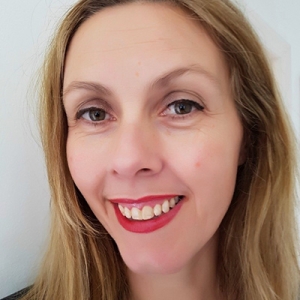 Hilary Collins, Founder, Big Wave PR
Hilary Collins, Founder, Big Wave PR
‘Flexible working has opened up so many opportunities for women. The new ‘wfh’ era offers the chance for top female execs to continue their career, whilst juggling parenthood. Often top female talent would leave, to seek their own flexible working solution by going freelance. Now there’s more options available, which brings added job security and career development opportunities. However, there’s still a lot of work to be done to get more women into Director level positions; this must change.’
 Angela Yore, CEO of SkyParlour
Angela Yore, CEO of SkyParlour
‘Since I joined the industry, we’ve seen a significant increase in female leadership roles, both within tech PR, paving the way for more diverse perspectives in financial communications. Additionally, there’s now much greater support through mentorship programs specifically tailored for women in tech-driven fields, helping them navigate this traditionally male-dominated landscape. That’s something I’m very passionate about. I’ve benefitted from strong mentorship and am now in a position to offer it through organisations like the European Women in Payments Network where I’m the Chair.
‘Women in comms, and particularly tech comms, still encounter challenges such as gender bias in a male-dominated industry and a lack of representation in key decision-making roles. To address these challenges, we need to implement initiatives that connect women with leaders and create inclusive environments that actively promote women’s contributions.’
 Chloé Nelkin, founder and Director, Chloé Nelkin Consulting
Chloé Nelkin, founder and Director, Chloé Nelkin Consulting
‘Comms in the arts is a female dominated industry but I speak to many women who still feel men hold a lot of the senior positions and don’t feel assured or listened to. I believe it is absolutely vital for women to have confidence in their own voices and to speak their truth – it isn’t always easy to speak up and present an idea or new strategy in a room full of people but others can only be guided by you if you trust your own judgement and truly believe in the decisions you are making.
‘We still have challenges to face and stereotypes to break down. Being strong and forthright as a woman isn’t always considered positively as it would be with a man. However, sometimes it can be – I overheard one of our clients in a toilet cubicle the other day describe me as a ‘badass’ – I hope I can help imbue that vibe across the industry through mentoring and supporting other women to ensure women are allowed to be assertive and speak up.’
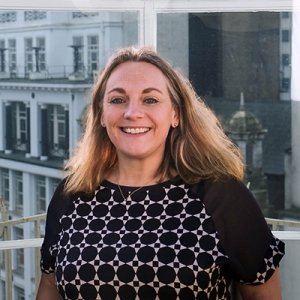 Rachel Roberts, CEO and Co-Founder of Leopard Co
Rachel Roberts, CEO and Co-Founder of Leopard Co
‘Greater flexibility has been a gamechanger for women with juggling work and family responsibilities compared to 18 years ago when I first became a mum. While there is greater sharing now of parental responsibility, women still pick up the biggest share of family responsibility. Things are better, but it’s still pretty tough to keep all your clients happy, especially the ones at home!
‘We need to be honest that while there is greater equality, I personally still experience some misogyny. I hope that this will literally die out as we have a generational shift and those few senior males still left who have struggled to adapt will be replaced by the next generation who grew up surrounded by diverse influences.’
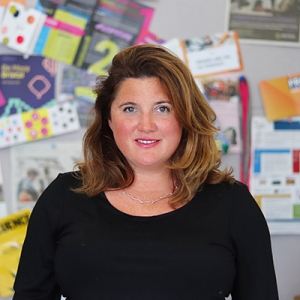 Sarah Woodhouse, Director, AMBITIOUS
Sarah Woodhouse, Director, AMBITIOUS
‘In the 2000s, it was rare to see mothers thriving in agency roles as many moved in-house, where benefits were better and schedules perceived as less gruelling, or they left PR altogether. Today, agencies offer much-improved maternity leave, flexible working policies, and a more mature, supportive environment for parents. This shift has allowed more women to remain and progress in agency-side roles while balancing their personal and professional lives.
‘Women in relationships still carry much of the burden of caring responsibilities, and this imbalance needs to be addressed. Real change requires action at a government level, with policies that better support women in the workplace. School hours need to align more closely with standard working hours, there must be greater support for affordable nursery places, and stronger incentives are needed for men to take on an equal share of parental and caring responsibilities. Without these structural changes how can anything much change?’
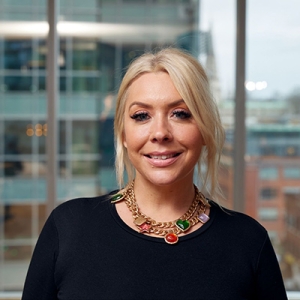 Emma Heley, Co-Founder and MD, Thinking Hat Media
Emma Heley, Co-Founder and MD, Thinking Hat Media
‘Women still struggle with confidence and feel like they don’t deserve a seat at the table—but we absolutely do. We have to learn to be comfortable with who we are and try not to compare ourselves with others, which can be hard.
‘Confidence (or the perception of it) plays such a huge role in leadership, especially in PR where visibility, storytelling, and influence are key to the job. For women in PR, there’s often this internal tug-of-war: knowing you’re capable but still second-guessing whether you’re really good enough.
‘We have to own our areas of expertise and stop apologising for being who we are. Authenticity is a superpower!
‘It’s also important to surround yourself with like-minded women in leadership positions – or supportive allies – who get it. I’m proud that our senior leadership team is 75% female and I couldn’t do my job without them. Their support is fundamental to the agency’s success.’



Leave a Comment